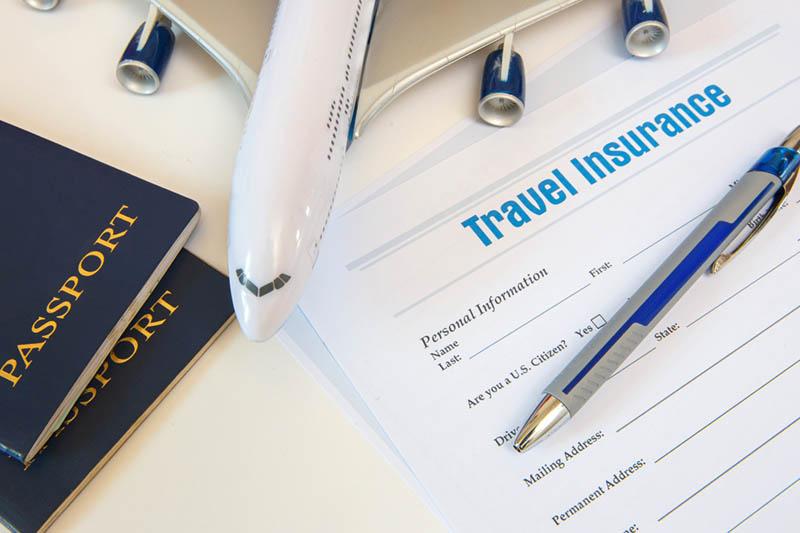In an increasingly interconnected world, travel has become an integral part of our lives, whether for leisure, business, or personal reasons. As we venture across borders and time zones, the unpredictability of travel—ranging from flight cancellations to medical emergencies—has underscored the importance of travel insurance. However, a common dilemma facing travelers is whether to purchase insurance through airlines or opt for third-party providers. This article delves into the intricacies of both options, examining the benefits and drawbacks associated with each. By analyzing factors such as cost, coverage, and convenience, we aim to provide a comprehensive guide to help you make an informed decision about safeguarding your travel plans.
Evaluating Coverage Options and Limitations
When selecting travel insurance, it’s crucial to thoroughly assess the coverage options and limitations offered by both airlines and third-party providers. Airlines often present policies that may seem convenient, but these can be limited in scope. Common limitations include narrow coverage for trip cancellations, medical emergencies, and baggage loss. On the other hand, third-party providers typically offer more comprehensive packages that cover a wider array of potential issues, such as:
- Higher reimbursement limits for medical expenses
- Coverage for a broader range of travel disruptions
- Protection for adventure or high-risk activities
Analyzing the specifics of each policy is essential. While airlines might provide straightforward policies that are easy to purchase during ticket booking, third-party insurers often allow for customization to fit your unique travel needs. Be sure to scrutinize the fine print for exclusions and conditions that might affect your coverage. Ultimately, the decision hinges on your travel plans, risk tolerance, and the level of protection you desire.

Comparing Costs and Value Propositions
When evaluating the financial aspect of travel insurance, it’s crucial to examine both the cost and the value proposition offered by airlines and third-party providers. Airline-offered travel insurance often comes as a convenient add-on during the ticket purchasing process. This option might appear cost-effective initially, as airlines sometimes bundle insurance with other services for a discounted rate. However, these plans can be limited in coverage, focusing primarily on trip cancellations or delays directly related to the airline’s services.
On the other hand, third-party providers typically offer a wider range of coverage options, including medical emergencies, lost luggage, and even adventure sports. Although the upfront cost might be higher compared to airline-offered plans, the comprehensive nature of third-party insurance can offer greater peace of mind. Consider the following advantages of third-party providers:
- Broader Coverage: Extends beyond flight-related issues to cover various travel risks.
- Customizable Plans: Allows travelers to tailor coverage according to their specific needs.
- Independent Claims Process: Third-party providers manage claims separately, potentially offering more impartial resolutions.
Ultimately, the choice between airline and third-party travel insurance depends on your specific travel needs and risk tolerance. Weighing the immediate costs against the potential long-term benefits can help ensure you make a well-informed decision.

Assessing Customer Service and Support
When it comes to evaluating customer service and support, both airlines and third-party providers have their strengths and weaknesses. Airlines often offer the convenience of bundling travel insurance with your ticket purchase, providing a seamless experience. They may have dedicated customer service lines for insurance queries, which can be beneficial if you’re already dealing with them for your travel arrangements. However, the service quality can vary significantly between airlines, and the support may not be as specialized as that offered by insurance companies.
On the other hand, third-party providers typically specialize in travel insurance, offering a more focused and potentially comprehensive service. They often have dedicated teams to handle claims and inquiries, which can lead to more efficient and informed support. The downside is that you might face the inconvenience of dealing with separate entities for your travel and insurance needs. Here are some factors to consider when :
- Response Time: How quickly do they respond to inquiries and claims?
- Availability: Is their support available 24/7, especially during emergencies?
- Specialization: Do they have knowledgeable staff specifically trained in travel insurance?
- Customer Reviews: What do other travelers say about their service experiences?

Recommendations for Different Travel Scenarios
When considering travel insurance options, the choice between airline-provided policies and third-party providers often depends on the specifics of your travel plans. Here are some :
- Short Domestic Trips: For quick domestic journeys, airline insurance might suffice, offering basic coverage at a lower cost. However, it is crucial to review the fine print to ensure it covers your specific needs, such as flight cancellations or baggage loss.
- International Travel: If your itinerary includes multiple countries or extended stays, third-party insurance providers can offer more comprehensive coverage. These plans often include medical evacuation, trip interruption, and coverage for a wider range of activities.
- Adventure Travel: Engaging in high-risk activities like skiing or scuba diving? Opt for third-party providers that specialize in adventure travel insurance. They typically offer tailored packages that cover equipment loss and emergency medical expenses.
- Frequent Travelers: Consider a multi-trip insurance policy from a third-party provider. This can be more economical and provide consistent coverage across various trips, eliminating the need to purchase separate policies each time you fly.
Ultimately, the choice hinges on the nature and frequency of your travels. By evaluating your specific needs and potential risks, you can make a more informed decision that ensures peace of mind during your journeys.

